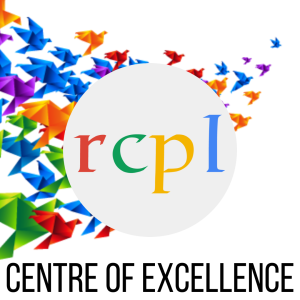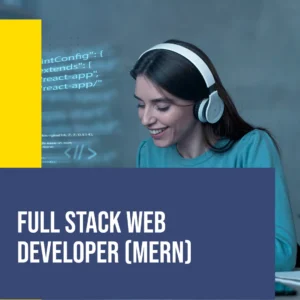Full Stack Web Developer (HTML, CSS5 ,JS, Bootstrapping ,PHP with MySQL) Basic
Original price was: ₹5,083.90.₹3,999.00Current price is: ₹3,999.00.
Description
Full Stack Web Developer is a software expert who’s equally proficient in frontend (client-side) development and backend (server-side) development. Full Stack Developers are familiar with each layer of tech stacks that go into the making of a software product.
This course is encapsulated with the following key materials
- Warm-up on the concepts of Web Development.
- Prepare with comprehensive Topic-wise tutorial Materials.
- Highly Qualified and Experienced Technical Team to help each trainee.
- Small Batch Size for focused Learning path of the student.
Prerequisites
- Basic Computer Knowledge.
- A basic understanding of HTML and Programming will be helpful.
- Willingness to improve and compete with the best.
- Curiosity to learn more and code.
Key Learning Outcomes:
When you complete this Course Curriculum, you will be able to accomplish the following:
- Design Static Web Application
- Develop dynamic Web Application
- Design and Develop Full Flashed Responsive Web Application
- New ways of solving problems, and the ability to solve more complex problems.
- Writing bug-free code.
Target Audience
- Students who want to get selected in Top-Tier IT Companies like TCS, Infosys, Microsoft, Samsung, Google, Amazon, Facebook, Wipro, and all leading MNCs of the world.
- Students who wish to work in the capacity of Full Stack Web Developer.
- B.Tech/MCA/BCA/B.Sc IT/M.Tech Students/Working Professionals from Corporate
Test & Evaluation
- During the program, the participants will have to take all assignments given to them for better learning.
- At the end of the program, a final assessment will be conducted.
Certification
- All successful participants will be provided with a certificate of completion.
- Students who do not complete the course / leave it midway will not be awarded any certificate.
Delivery Mode & Duration :
Online Live Mode – 100 Hours (50 Hours Online Live sessions + 50 Hours of assignment)
Module 1: Web Development Introduction
- Introduction
- What is Server? Discuss LAMP/WAMP/XAMP?
- Difference between global server and local server?
- Configuration of local server.
- Role of http over the network/Internet.
- Terminologies
- Web client
- Web server
- Web browser
- Webpage
- Website
- Discuss Client server architecture.
Module 2: HTML
- HTML Basics
- Understand the structure of a HTML page.
- Understanding HTML Elements.
- Creating and saving first web page.
- Defining the title on webpage.
- Showing the icon on webpage.
- Use of HTML Attributes.
- Syntax to use attribute in HTML.
- Using background image.
- Defining marquee in HTML
- Empty HTML element.
- Creating horizontal line.
- Text and link on web page
- Discussion on font formatting
- Creating Headings in HTML.
- Creating and styling Paragraphs.
- Using different color coding.
- Comments in HTML
- Linking webpages using hyperlink
- Creating different types of hyperlink
- Creating image on webpage.
- HTML Tables and basic layout
- Showing data in tabular form.
- Creating tabular data in different format.
- Discussion on different properties of table and its impact
- Formatting on table.
- Initial layout management of website using table.
- Discussion on div and span.
- HTML Lists
- Creating list on web page to show the details of product.
- Creating different types of List.
- Properties of numbered list.
- Properties of bulleted list
- Creating HTML description Lists
- HTML Forms
- Discussion on form
- Attribute related to form
- Method of posting form on to server.
- Discussion on binary data posting
- Creating textbox, checkbox, radio button etc. control.
- Differentiation between checkbox, radio button and drop down list.
- Discussion on taking long text from user like feedback, address etc.
Module 3: CSS
- CSS Basics
- Introduction of CSS.
- Advantage of using CSS over the HTML.
- Properties and its value in CSS.
- Ways to use CSS.
- Why external CSS.
- Comment in CSS.
- Selectors in CSS
- Discussion on selector.
- Different type of selector
- Tag selector
- Defining and using multi selector.
- Defining and using class selector
- Multiple classes on particular tag.
- Defining and using id selector.
- Defining and using universal selector.
- Why universal selector.
- Defining and using attribute selector.
- Use and advantage of using pseudo-class.
- Defining nested selector.
- Discussion on Pseudo element
- Text formatting using CSS
- Defining the color, size of text.
- Discussion on different measurement unit.
- Removing underline from hyperlink.
- Use of text transformation.
- Creating text shadow.
- Page formatting using CSS
- Defining the background.
- Managing image in background.
- Managing layout of page using position.
- Differentiate absolute, relative and fixed layout.
- Defining margin and padding.
- Setting individual margin and padding on page.
- Create transparent box.
- Table formatting using CSS
- Defining the separate and collapse border.
- Managing image in background.
- Generate different structure of table.
- Create table striped.
- Border formatting using CSS
- Defining border width
- Define the individual border width.
- Defining different kind of border style
- Define the individual border style.
- Defining border color
- Define the individual border color.
- Defining the radius of border.
- List formatting
- Setting list style
- Showing image as an list
- Positioning list.
- Creating navigation bar.
- Generating different view of navigation bar.
Module 4: JavaScript
- Introduction of JavaScript
- Basic of java script
- Function in java script
- Java script event handling
- Object in java script
- String in java script
- Number in java script
- Array in java script
- Error object in java script
- Type conversion in java script
- Form control in java script
- DOM
- Introduction of DOM.
- Discuss DOM over the java script.
- Ways to access HTML element using DOM.
- Accessing style using DOM.
- Add event listener using DOM.
- Add event handler to an element.
- Remove event listener.
- Create new HTML element using DOM.
- Remove HTML element using DOM.
- Discuss collection object.
Module 5: PHP
- Introduction
- Introduction to PHP.
- History of PHP.
- Why PHP?
- Discuss web server, also discuss LAMP/WAMP/XAMP.
- Environment step up and its requirement.
- Discuss about IP and port number.
- Discuss configuration related to service issue.
- Introduction of PHP interpreter.
- Execution of PHP script.
- PHP Basics
- How to write PHP script.
- Displaying message using PHP.
- Saving and running first code.
- Difference between echo and print.
- Discuss comments in PHP.
- What do you mean by PHP identifier?
- Naming convention of identifier in PHP.
- Discussion on PHP variable type.
- Displaying output in various formats.
- Concatenation operator in PHP.
- String in single quotation and in double quotation.
- What is type juggling?
- Showing the type of variables.
- Creating and accessing constant in PHP.
- Difference between constant and variable.
- Demonstration and discussion on magic constant in PHP.
- Operators in PHP
- What do you mean by operator?
- Types of operators.
- Discuss operators on the basis of number of operand.
- Decision making
- What do you mean of selection construct or decision making construct.
- Explanation and demonstration on if-else, nested-if and else if ladder.
- Discuss and demonstrate switch-case.
- Looping
- What do you mean by loop?
- Different looping statement in PHP.
- Demonstration on while, do-while, for and foreach loop in PHP.
- Discuss break and continue statement with demonstration.
- Array
- What do you mean by array?
- How PHP array different from array of other languages.
- Discuss array function.
- How many types of array available in PHP.
- Discuss numerical array and associative array as multidimensional array.
- Demonstrate sorting in an array elements.
- Discuss other function that manipulate or access array elements.
- String
- What is string?
- How many ways to define a string in PHP.
- Differentiate implode and explode.
- Demonstration on converting plain text into cipher text.
- Finding the length of string.
- Converting string in different cases.
- Replacing string in PHP.
- Comparing strings.
- String repetition function and repetition operator.
- Discuss various string related function.
- Function
- What do you mean by function?
- Types of function.
- Creating user defined function.
- Ways to create user defined function.
- Local and global scope of variable.
- Role of default argument in PHP function.
- How to return multiple values from function.
- Creating variable function in PHP.
- Including and managing external static and dynamic resources.
- Demonstrating built in functions.
- Reusing Code in PHP
- include statement
- include_once statement
- require statement
- require_once statement
- File Handling
- What is file? Differentiate file with directory.
- Why file is required?
- Opening and closing file in PHP.
- Discuss different mode of opening file.
- Writing file using PHP.
- Reading files in PHP.
- Removing and renaming files in PHP.
- Copy file content in PHP.
- Opening directory in PHP.
- Read the content from directory.
- Getting and changing directory.
- Creating and removing directory in PHP.
- Form Handling
- Discuss get and post method of form.
- Using $_GET[] and $_POST[] super global variable.
- Discuss use of $_REQUEST[].
- Discussion on binary data posting.
- Action attribute of form tag.
- Demonstration of sending form data on PHP script.
- Discussion on $_PHP_SELF.
- Writing PHP script in same page.
- Validating control and showing error messages using PHP.
- State management
- What do you mean by state management?
- Discuss HTTP is stateless protocol.
- Discussion on request and response.
- What is query string? How we can use.
- Discuss the advantage and disadvantage of query string.
- Understanding session and cookie?
- Differentiate session and cookie.
- Demonstrate creation of session and how to remove it.
- Removing all created session in PHP.
- Advantage of using session in PHP.
- Discuss the role of session_start().
- How to turn on session automatically.
- Discussion on default path and time of session.
- How get current session id.
- Discuss maximum data size PHP session can hold.
- Demonstration creating and removing session.
- Creating and removing cookies in PHP.
- Discussion of size of cookies.
- Types of cookies in PHP.
- Create login page with user credential.
- Demonstration on securing login.
Module 6: Database Programming in PHP using MySQL
- Database
- Introduction of database.
- Advantage of using database over file oriented approach.
- What do you mean by database?
- What do you mean by DBMS?
- Differentiate DBMS with RDBMS.
- Discuss terminologies used in RDBMS.
- What is SQL?
- What do you mean by DDL, DML, DQL statements?
- What do you mean by query?
- CRUD operation
- Step to connect with database.
- Differentiating mysql with mysqli.
- What do you mean by procedural and object oriented connection.
- Demonstration to connect with server.
- Checking server connection.
- Showing record of table using PHP script.
Module 7: Project Work
You can also give us a call on Mobile +91-9312889010





